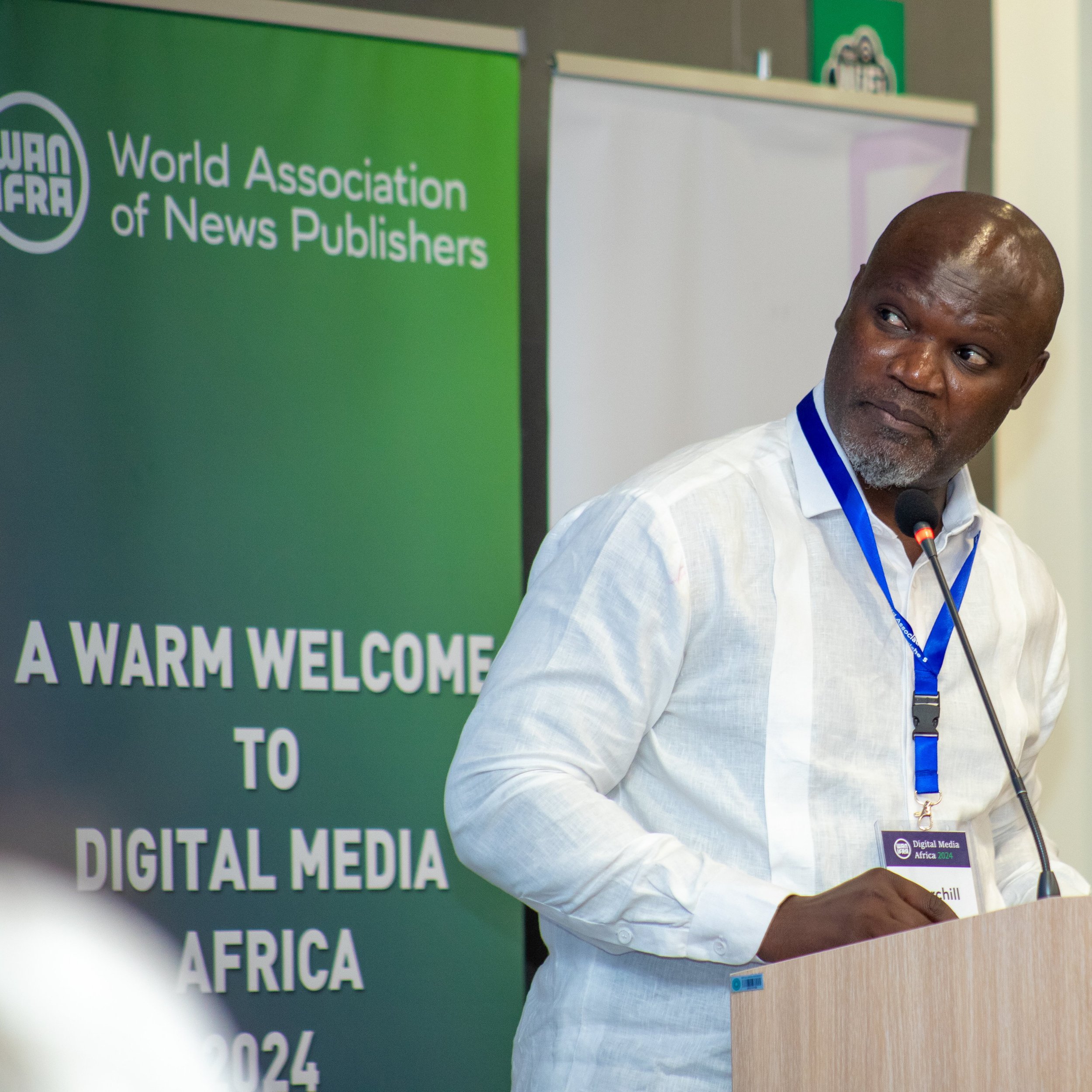“Money recovered from corruption should be invested back to Investigative Journalism” -Churchill Otieno
During the recently concluded Digital Media Africa 2024 conference that was held in Nairobi, Kenya. The President of The Africa Editors Forum Mr Churchill Otieno made a call for African leaders to reinvest the money recovered form corruption on Investigative Journalism.
Digital Media Africa 2024 Attendees group photo
This conference come at a time where most media houses are struggling to keep the business a float. This issues began after covid where most advertising revenue that media houses depends on to make money was diverted to online. This big shift paved way for content creators and influencers to take over the advertising business due to their flexibility. It was just one of the many reasons media houses are not making enough money.
Addressing this in his opening speech Churchill Otieno gave 4 points that would help revive the media. First point touched on recalibrating media regulations. He pointed out that the current regulators are focused on rights based approach they also need to focus on the economic perspectives as well.
He stated that the media is really struggling to make money and they have to think of more ways to. make money other than advertisment saying. “We must confront the elephant in the room: media sustainability. The question is stark – how shall we continue to pay for journalism, especially when society needs it more than ever? Advertising alone can no longer be relied on to sustain the industry. TAEF proposes a bold, home-grown solution: Africa should reinvest its anti-corruption recoveries into building a resilient media ecosystem. Why? Because corruption thrives where there is opacity and where journalists are silenced.”
Just last week, Kenya’s Ethics and Anti-Corruption Commission handed President William Ruto Ksh5.5-billion – roughly $43-million – recovered from corrupt entities, noted Otieno. “Imagine if this kind of recovered wealth was invested in investigative journalism. The media would have the resources to expose corruption at its roots, hold power to account, and create transparency that strengthens governance. This is not charity; this is investing in the foundation of a democratic and ethical society.”
Otieno also called on news organisations to also invest in research and development (R&D).
Churchill Otieno President The Africa Editors Forum
“We need to find new ways to tell our stories – ways that are engaging, relevant, and aligned with how technology is shaping the consumption of information. But beyond storytelling, R&D is key to understanding our audiences, building stronger relationships with them, and adapting as the news process evolves. Without this investment, we risk becoming irrelevant in a world where attention spans are short, and competition for engagement is fierce,” he said.
The two-day conference co-hosted by WAN-IFRA, the Aga Khan University, and the Eastern Africa Editors Society, in Nairobi, Kenya, took place under the theme Innovative Solutions for Today’s Media and was attended by 150 delegates.
As part of the conference TAEF and WAN-IFRA organised a workshop on Tuesday 17 September 2024 for editors and media managers from Africa, on how to integrate artificial intelligence (AI) into newsrooms in efficient, effective, and ethical ways. The workshop also discussed ways to grow audiences and revenue.
The conference was a huge success, it left the attendees wishing they had more time to learn and network in Nairobi, Kenya.

